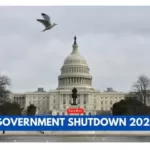Washington, D.C.: In a significant legal showdown, the Federal Trade Commission (FTC) and 17 state attorneys general have jointly filed a lawsuit against Amazon, leveling accusations that the e-commerce titan is employing its commanding position in the marketplace to artificially inflate prices on other platforms, overcharge third-party sellers, and impede fair competition.
The lawsuit, which was filed in the US District Court for the Western District of Washington on Tuesday, culminates from an extensive and protracted investigation into Amazon’s business practices. It represents one of the most formidable legal challenges the company has encountered in its nearly three-decade history.
FTC Chairman Lina Khan emphasized the detailed allegations outlined in the complaint, which expose Amazon’s exploitation of its market monopoly for self-enrichment. Khan remarked, “Amazon is now exploiting its monopoly power to enrich itself while raising prices and degrading service for the tens of millions of American families who shop on its platform and the hundreds of thousands of businesses that rely on Amazon to reach them.”
The FTC, in conjunction with the states, seeks a permanent injunction from the court, aimed at curbing Amazon’s alleged unlawful conduct and dismantling its monopolistic stranglehold to reintroduce a sense of competitiveness into the marketplace.
Observers had speculated whether the FTC would push for a forced breakup of Amazon, a conglomerate that not only reigns supreme in e-commerce but also boasts dominance in cloud computing and has steadily expanded into sectors such as groceries and healthcare. During a briefing with reporters, Chairman Khan sidestepped inquiries regarding potential structural alterations.
“At this juncture, our primary focus is on establishing liability,” Khan asserted.
Chairman Khan had previously taken legal action against Amazon in 2017, alleging anti-competitive behavior. After assuming the role of FTC chair in 2021, she filed another lawsuit against the corporation, accusing it of employing manipulative and deceptive tactics to ensnare consumers into recurring subscriptions—an allegation Amazon vehemently refuted.
In this latest lawsuit, the FTC does not classify Amazon as a monopoly solely due to its sheer size but rather alleges that the company is stifling competition through the imposition of anti-discounting measures. These measures restrict merchants who utilize Amazon’s platform from offering lower prices on alternative platforms.
Furthermore, the complaint contends that Amazon coerces merchants into employing its delivery and fulfillment system as a prerequisite for Prime eligibility—a designation the FTC deems virtually indispensable for conducting business on Amazon. This reliance on Amazon’s fulfillment system substantially escalates the costs incurred by sellers who also wish to market their products on other platforms.
The lawsuit also casts a spotlight on Amazon’s search algorithms, asserting that they exhibit a preference for the company’s in-house product line over superior offerings from other vendors. The FTC seeks an injunction that would mandate the cessation of these practices, potentially ushering in significant alterations in user interactions with the Amazon platform and the types of products that surface during online shopping.
As of the time of reporting, Amazon has not issued a response to the lawsuit.






